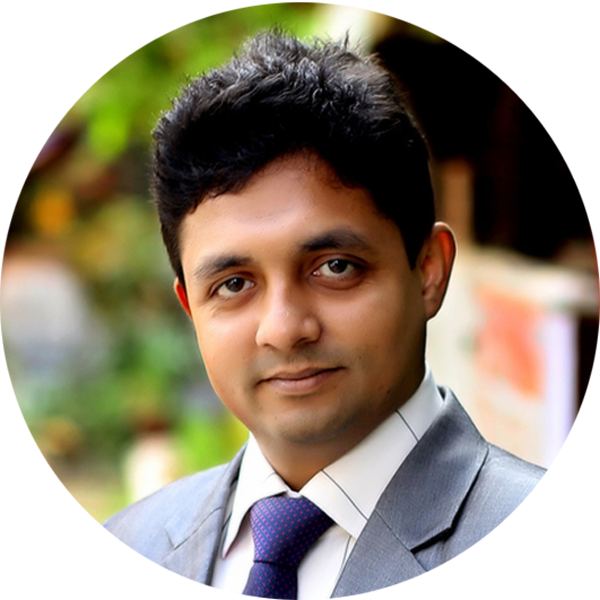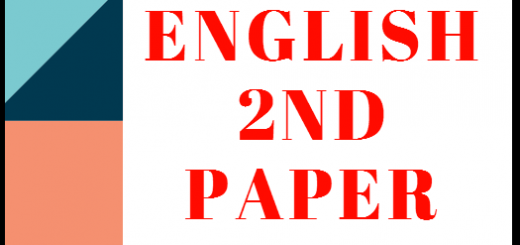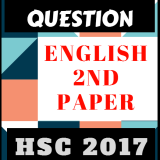Present Participle এবং Past Participle এর মজার ব্যবহার outgoing vs incoming Theory
Present participle vs past participle: OUTGOING vs INCOMING Theory _ English grammar lesson in Bangla
Hello everyone, are you interested in English movies?
Can you tell me the names of some interesting movies?
না, এই পোস্টে আমি কোন ইংলিশ মুভি নিয়ে কথা বলবো না। বরং, খেয়াল করুন শুরুতেই আমি যে প্রশ্ন দুটি করেছি তাতে একই শব্দের দুটি ভিন্ন রূপ ব্যবহৃত হয়েছে। সেগুলো হচ্ছে- interesting এবং interested যাদের grammatical names হচ্ছে Present Participle এবং Past Participle।
এই পোস্টে আমরা আলোচনা করবো, Present Participle এবং Past Participle গুলো বাক্যে কোথায়, কখন, কেন এবং কিভাবে ব্যবহৃত হয়। এক্ষেত্রে আমাদের concept কে clear করার জন্য OUTGOING এবং INCOMING Theory এর মাধ্যমে ব্যাখ্যা করবো।
Present Participle এবং Past Participle কি?
Present Participle এবং Past Participle হচ্ছে Verb থেকে উদ্ভূত দুটি রূপ যা Verb এর সাথে ing যুক্ত করে এবং Verb এর ৩য় রূপ এর মাধ্যমে গঠিত হয়। এগুলো ২ ভাবে ইংরেজি বাক্যে ব্যবহৃত হয়ঃ
১। Main Verb হিসেবে
২। Adjective হিসেবে
Participle এর Main Verb হিসেবে ব্যবহারঃ
১। Present Participle যখন Main Verb হিসেবে ব্যবহৃত হয় তা Continuous Tense এ ব্যবহৃত হয়:
The man was disturbing us.
২। Past Participle যখন Main Verb হিসেবে ব্যবহৃত হয় তা Perfect Tense & Passive Voice এ ব্যবহৃত হয়ঃ
The man has disturbed us.
We were disturbed by the man.
Participle এর Adjective হিসেবে ব্যবহারঃ
Present Participle এবং Past Participle এর একটি গুরুত্বপূর্ণ কিন্তু Confusing ব্যবহার হচ্ছে Adjective হিসেবে ব্যবহৃত হওয়া। Participle যখন Adjective এর কাজ করে তা কোন Noun বা Pronoun কে modify করে বা তার সম্পর্কে কিছু বলে। এক্ষেত্রে, Present Participle এবং Past Participle কয়েকভাবে Noun বা Pronoun সম্পর্কে তথ্য দিতে পারে। যেমন,
১। Noun/Pronoun এর ঠিক আগে বসেঃ
Interested people can apply for the job.
They are very interesting people.
২। Noun/Pronoun এর পরে বসেঃ
Only the people interested in technology should enroll in this course.
৩। Linking Verb এর পরে বসে Subject কে নির্দেশ করেঃ
My brother is very depressed.
৪। Object এর পরে বসে Object কে নির্দেশ করেঃ
I found my brother depressed and sitting beside the window.
Present Participle এবং Past Participle: কোন Participle কখন ব্যবহার করবেন?
এতক্ষন আমরা বাক্যের বিভিন্ন অবস্থানে Participle এর ব্যবহার দেখেছি। এখন আমরা আলোচনা করবো কখন Present Participle এবং কখন Past Participle ব্যবহার করতে হবে। বিষয়টি ব্যখ্যা করার জন্য একটু আগে উদাহরন হিসেবে ব্যবহার করা দুটি বাক্য যদি খেয়াল করি, তবে দেখতে পাবো, প্রথম বাক্যে interesting people অর্থাৎ মজার লোক ব্যবহৃত হয়েছে। এক্ষেত্রে মজা ব্যপারটা এই লোকদের থেকে অন্নদের দিকে যাচ্ছে অর্থাৎ Outgoing হচ্ছে।
They are very interesting people.
Interested people can apply for the job.
অন্নদিকে দ্বিতীয় বাক্যে Interested people বা আগ্রহী লোক বলতে যাদের ভেতর আগ্রহ আছে তাদেরকেই বোঝানো হচ্ছে। এক্ষেত্রে আগ্রহ ব্যপারটা বাইরে থেকে এই লোকদের ভেতরে incoming হয়েছে।
সব মিলিয়ে সুত্রটি হলো
Present Participle= Outgoing
Past Participle= Incoming
একইভাবে আমরা যদি Verb থেকে উদ্ভুত আরো কিছু participles ব্যবহার করি তাহলে Outgoing ও Incoming থিওরি আমাদের কাছে স্পষ্ট হবে। যেমন, boring class
List of frequently used but confusing participles:
| Verb (Base form) | Present Participle | Past Participle |
| Alarm | alarming | Alarmed |
| Amaze | amazing | Amazed |
| Amuse | Amusing | Amused |
| Annoy | annoying | Annoyed |
| Bore | boring | Bored |
| Charm | charming | Charmed |
| Confuse | confusing | Confused |
| Convince | convincing | Convinced |
| Depress | depressing | Depressed |
| devastate | devastating | Devastated |
| disgust | disgusting | Disgusted |
| disturb | disturbing | Disturbed |
| Embarrass | embarrassing | embarrassed |
| encourage | encouraging | Encouraged |
| entertain | entertaining | entertained |
| excite | exciting | excited |
| please | pleasing | pleased |
| relax | relaxing | relaxed |
| satisfy | satisfying | satisfied |
| shock | shocking | shocked |
| surprise | surprising | surprised |
| frighten | frightening | frightened |

✔Lecturer in English at Jhenaidah Cadet College, Jhenaidah, Bangladesh
✔Former Lecturer in English at Uttara University, Dhaka, Bangladesh
✔Content Writer of some of the websites on English Language and Literature
✔Video Content Creator on the YouTube channel, Speak English BD
✔Master Trainer of Continuous Assessment (CA)
✔Translator, NCTB











